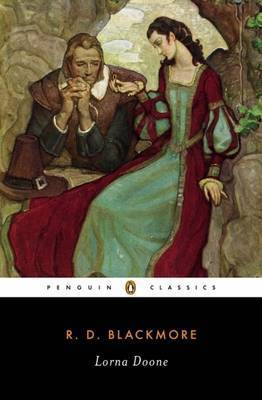What do you think?
Rate this book


800 pages, Paperback
First published January 1, 1869


we of the moderate party, hearing all this and ten times as much and having no love for this sour James, such as we had for the lively Charles, were ready to wait for what might happen, rather than care about stopping it
the price of horses' shoes was gone up again, though already twopence-farthing each; and that Betty had broken her lover's head with the stocking full of money
Flying men, flung back from dreams of victory and honour, only glad to have the luck of life and limbs to fly with, mud-bedraggled, foul with slime, reeking both with sweat and blood, which they could not stop to wipe, cursing, with their pumped-out lungs, every stick that hindered them, or gory puddle that slipped the step, scarcely able to leap over the corses that had dragged to die
Too late we know the good from bad; the knowledge is no pleasure then; being memory's medicine rather than the wine of hope
Hope, of course, is nothing more than desire with a telescope, magnifying distant matters, overlooking near ones; opening one eye on the objects, closing the other to all objections. And if hope be the future tense of desire, the future of fear is religion—at least with too many of us.
Now this may seem very strange to us who live in a better and purer age—or say at least that we do so—and yet who are we to condemn our fathers for teaching us better manners, and at their own expense?
"You sweet love," I said at this, being slave to her soft obedience; "do you suppose I should be content to leave you until Elysium?" "How on earth can I tell, dear John, what you will be content with?" "You, and only you," said I; "the whole of it lies in a syllable. Now you know my entire want; and want must be my comfortetc. etc.
Zailor, ees fai! ay and zarve un raight. Her can't kape out o' the watter here, whur a' must, goo vor to vaind un, zame as a gurt to-ad squalloping, and mux up till I be wore out, I be, wi' the very saight of 's braiches. How wil un ever baide aboard zhip, wi' the watter zinging out under un, and comin' up splash when the wind blow. Latt un goo, missus, latt un goo, zay I for wan, and old Davy wash his clouts for un.‚Ä�